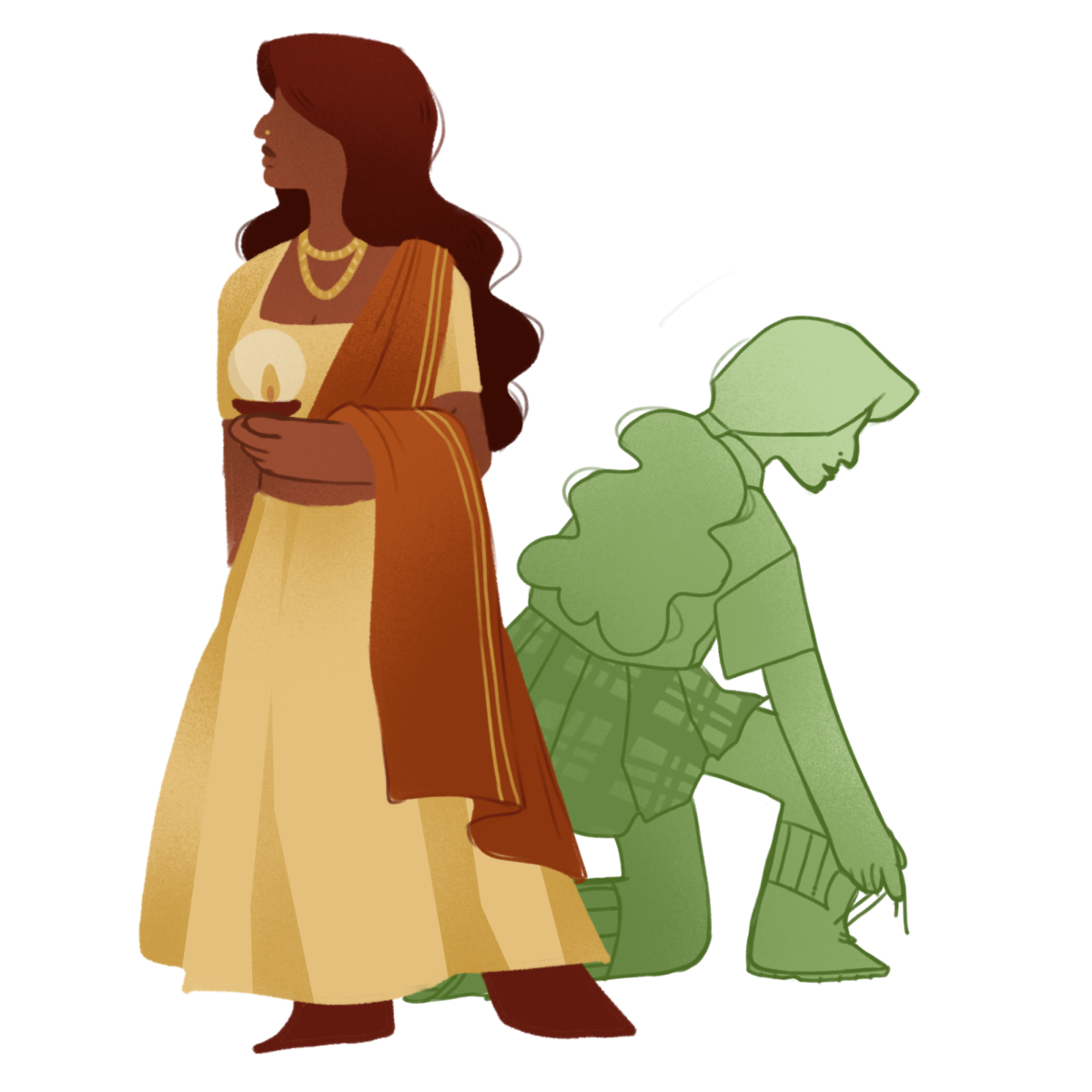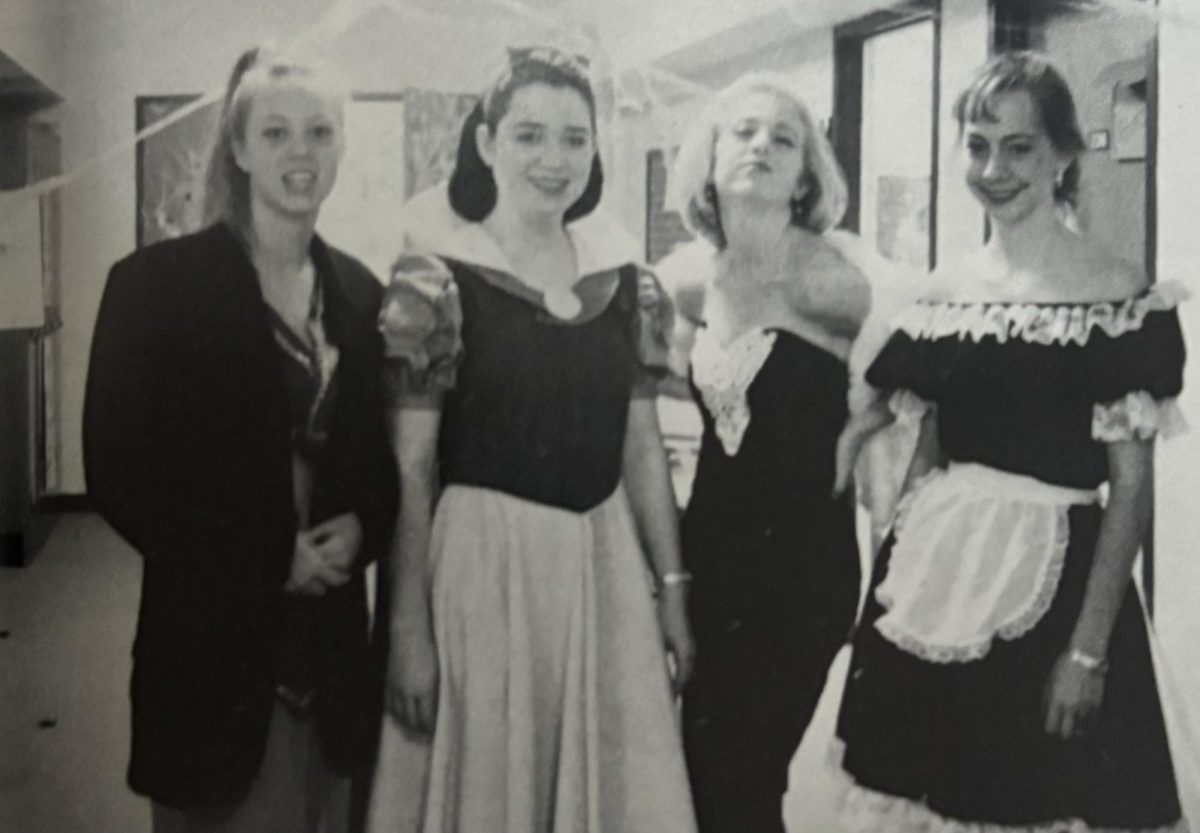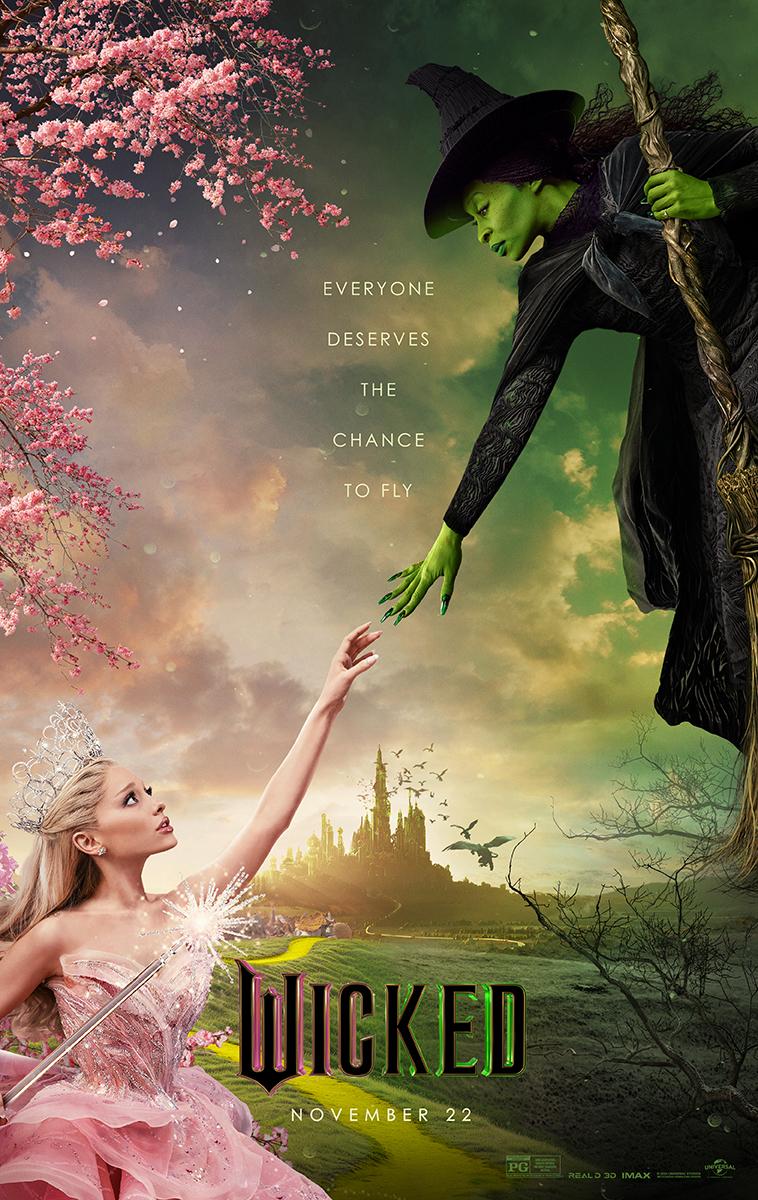I rarely conflate musicals with my real life. Probably because life doesn’t give us a proofread script and an entourage of back-up dancers to adorn our steps. The idea of someone breaking into song during lunch or in the hallway seems plain embarrassing—particularly if one has a sub-par voice and the range of a sine graph, like I do. Breaking into song has just never been socially acceptable.
But why? We clearly love to watch other people wax histrionic. Hollywood has released a number of box-office hits based on musicals; in our middle school years, we all (not so) secretly crushed on Zac Efron as he sang his way through “High School Musical” basketball practices; today, TV shows like “Glee” and “How I Met Your Mother” incorporate song-and-dance numbers into dialogue to spice up the script.
We are what we watch. And for a people who do not condone spontaneous singing, we sure watch a lot of musicals. Every other genre of media directly reflects the scope of reality. I’m sure the first thought that popped into every girl’s head when she watched “The Notebook” was something along the lines of, “That’s exactly like my life!” And Hogwarts may have forgotten to send us letters, but, hey, mistakes happen all the time. I can confidently say that we are stronger witches for it, having all learned to balance our OWL and AP exams with Quidditch and lacrosse practices. Sarcasm intended.
Admittedly, movies are quite removed from reality. However, that does not mean that we should not strive to make them so when we can or when it makes sense to—and sporadically breaking out in song and dance falls into both of those categories. Oftentimes, the magic of Hollywood is physically impossible. This is not one of those cases. Everyone can sing and everyone can dance—albeit to various degrees of competence. We are the only barrier between our monotone lives and the Freedom of Song.
When I say “Freedom of Song,” I mean it in the musical theater sense: song and dance should be integrated into life, particularly in casual conversation, when the pressures of efficient communication do not hold. Our lives would look like musicals (though they may not sound as terrific; not everyone has the voice of Emmy Rossum). Liked that dance number in “Sound of Music?” I think you should be able to frolic through a crowd singing and dancing the entire Rodgers and Hammerstein repertoire without getting hit by rays of judgment from passing eyes. In fact, I think people should join in on your rendition of “My Favorite Things.”
At this point, you’re probably asking why anyone should want to sing publicly at all. According to research compiled by Florida State University’s Cori L. Pelletier, music has great therapeutic value—especially in quelling stress and anxiety. Instead of allowing the burdens of a math test to weigh heavily upon yourself, sing about it! The communal dance number that would ensue in a musical-friendly world would not only give the subject of said song a much-needed diversion from their troubles, but also show him/her the support system a community can provide. No musical production can succeed with just one person; the same goes for life.
Even more significant is the importance of self-expression. Having consulted with Upper School Counselor Dr. Margaret Morse, I may not have what it takes to make it in Broadway, but I do know a few things about the benefits of self-expression. When I told her of my desire to integrate musicals into life, she laughed appreciatively and suggested that “The therapeutic part of [breaking into song] might be the silliness factor of it. Just being silly and giddy would release the endorphins that are euphoric.” The thrill and weirdness of singing with friends or strangers can keep us on our toes (literally).
When I presented my quest to Mr. Ed Long, History of Art and Music expert, he granted me some additional words of wisdom. “What you’re talking about is not only spontaneous, it’s also sharing. It is the tougher moment just as the public at large is going into a greater privacy mode with their ear buds. While they’re busy at this incredibly large scale [in terms of the age of information], singing takes your world down to you and her, which is a strange difference. Singing is not writing on their Facebook wall.” And that is what I believe is the ultimate importance of song: its ability to connect us on the most basic, human level. How could we not pass up an opportunity to make this a part of our own culture?
Before I could proactively put this whole argument to test, the Class of 2012, upon senior Isabella So’s suggestion, coordinated a “wobble fest” in the lunch room. On the first Friday of second semester, many seniors stayed on campus for lunch for an opportunity to spontaneously break it down with the line dance famously titled, the Wobble. At precisely 12:20 p.m., we played “Wobble Baby” over the cafeteria speakers. And the rest was history: lunching seniors dropped their hamburgers simultaneously and started wobbling around the lunch room in a scene quite reminiscent of the “High School Musical” lunchroom dance numbers. So, naturally, people gave us weird looks. But the sense of unity and purpose that my classmates and I experienced seemed to override everything else; but I must note that in a world of socially-acceptable song and dance, everyone would have joined in.
So now I must ask the most important part question of all: what song? And that, I leave to you. Though I hope whatever song you choose becomes your “Bridge Over Troubled Water,” if you will.
-Kristin




